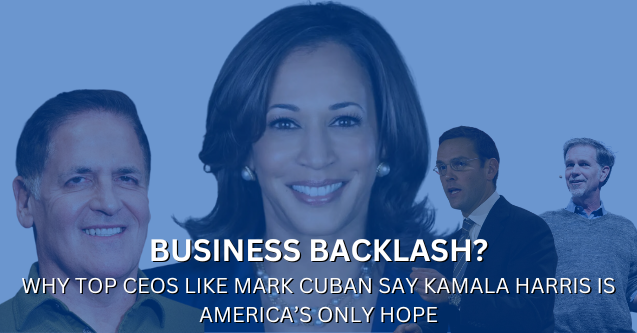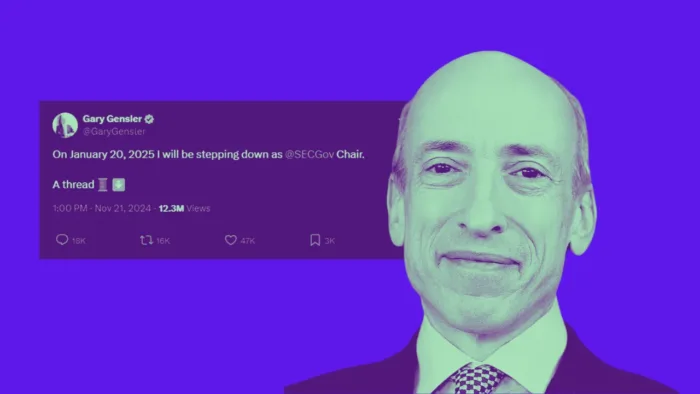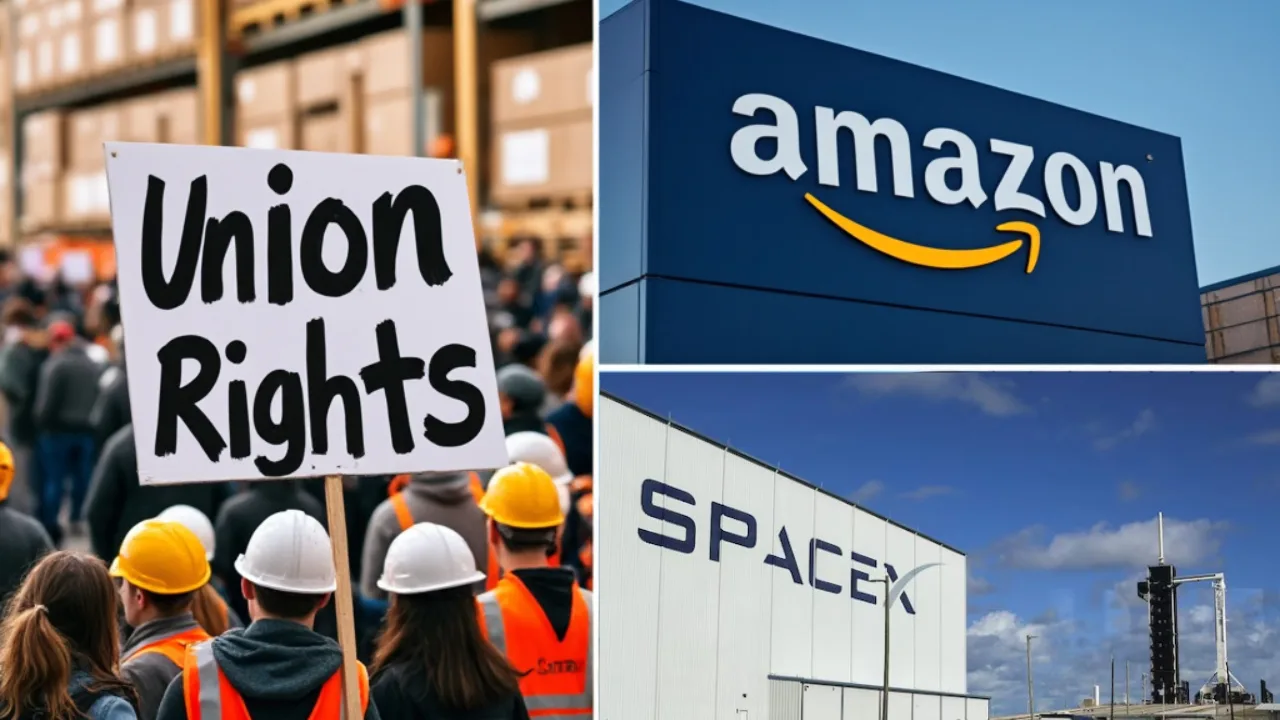As the 2024 presidential race heats up, Vice President Kamala Harris is gaining significant support from some of the most prominent names in the business world. A diverse group of 88 business leaders, ranging from tech moguls to former CEOs, have publicly endorsed Harris, highlighting her appeal as a pro-business candidate. This article explores the key endorsements, their motivations, and what it could mean for Harris’s campaign and potential economic policy.
Key Endorsements
- Mark Cuban: Billionaire entrepreneur and owner of the Dallas Mavericks, Mark Cuban, has endorsed Kamala Harris for the 2024 presidential election. Cuban believes Harris is a pro-business candidate who listens to business leaders and integrates their feedback into her policy proposals. For example, she has proposed a 28% tax rate on capital gains, which is more business-friendly compared to President Biden’s 39.6% proposal. According to Cuban, Harris’s policies are more supportive of entrepreneurs than any other candidate in recent times, making her an ideal choice for fostering a conducive environment for business and innovation. Cuban stated, “Kamala Harris is listening to business people and getting their feedback on what’s fair and what will lead to more investment in business”(AS USA).
- James Murdoch: James Murdoch, the son of media mogul Rupert Murdoch and former CEO of 21st Century Fox, is another high-profile business leader who has endorsed Harris. Unlike his father’s conservative leanings, James Murdoch has distanced himself by supporting Harris, aligning with more moderate or liberal perspectives. His endorsement indicates support for Harris’s promise to maintain stability, the rule of law, and a predictable business environment—elements seen as crucial for sustaining economic growth(Business Insider).
- Reed Hastings and Other Tech Leaders: Netflix co-founder Reed Hastings is another prominent figure endorsing Harris. Hastings went beyond mere endorsement, contributing $7 million to her campaign through a super PAC. This move has sparked backlash from conservative groups, including calls for a boycott of Netflix. Despite this, Hastings, along with other tech leaders, believes Harris represents a forward-thinking approach to business and innovation. They see her as a candidate who balances economic growth with fair governance, a stance that resonates with many in the tech sector(AS USA).
- Broader Support from Business Executives: The endorsement list features a wide range of influential names, such as Laurene Powell Jobs, Aaron Levie (CEO of Box), Jeremy Stoppelman (CEO of Yelp), Melinda French Gates, former Time Warner CEO Jeff Bewkes, and former PayPal CEO Daniel H. Schulman. These leaders believe Harris’s policies will continue to advance fair and predictable policies that support the rule of law, stability, and a sound business environment(Business Insider).
- Fundraising Success and Strategic Implications: The Harris campaign has seen a substantial boost in fundraising, amassing $361 million in August alone—nearly three times the funds raised by Donald Trump’s campaign. Much of this financial support is coming from moderate Republicans and independents, indicating that Harris’s platform is attracting voters beyond the traditional Democratic base. This diverse support could prove crucial as Harris positions herself as a centrist, pro-business candidate who can unify different segments of the electorate(AS USA).
Why Are Business Leaders Endorsing Harris?
The endorsements from such a broad spectrum of business leaders suggest that they see Harris as a candidate who can balance economic growth with fair regulations. Her approach to capital gains tax, commitment to small businesses, and emphasis on stability and the rule of law resonate with leaders across industries. By endorsing Harris, these leaders signal a desire for governance that is neither overly restrictive on business nor completely laissez-faire, but instead, aims for balanced, predictable economic policy.
Potential Impact on the 2024 Election
With these high-profile endorsements, Harris is positioning herself as the pro-business candidate in a race where economic policy will be a key battleground. Her ability to attract both long-time Democratic donors and new supporters from the business community suggests a broadening coalition that could be critical in swing states and among undecided voters.
The backing of figures like Mark Cuban, James Murdoch, and Reed Hastings also adds credibility to Harris’s campaign as she seeks to distinguish herself from both her Democratic predecessor and her Republican opponent, Donald Trump. By appealing to a centrist, pro-growth electorate, Harris is reshaping the 2024 election narrative, focusing on economic competence and pragmatic governance.
Conclusion
Kamala Harris’s endorsements from business titans represent a strategic win for her 2024 presidential bid. By drawing support from across the political and business spectrum, she is poised to present herself as a unifying candidate who can navigate complex economic challenges. As both Trump and Harris outline their economic visions, these endorsements could be a deciding factor in who ultimately secures the White House.





